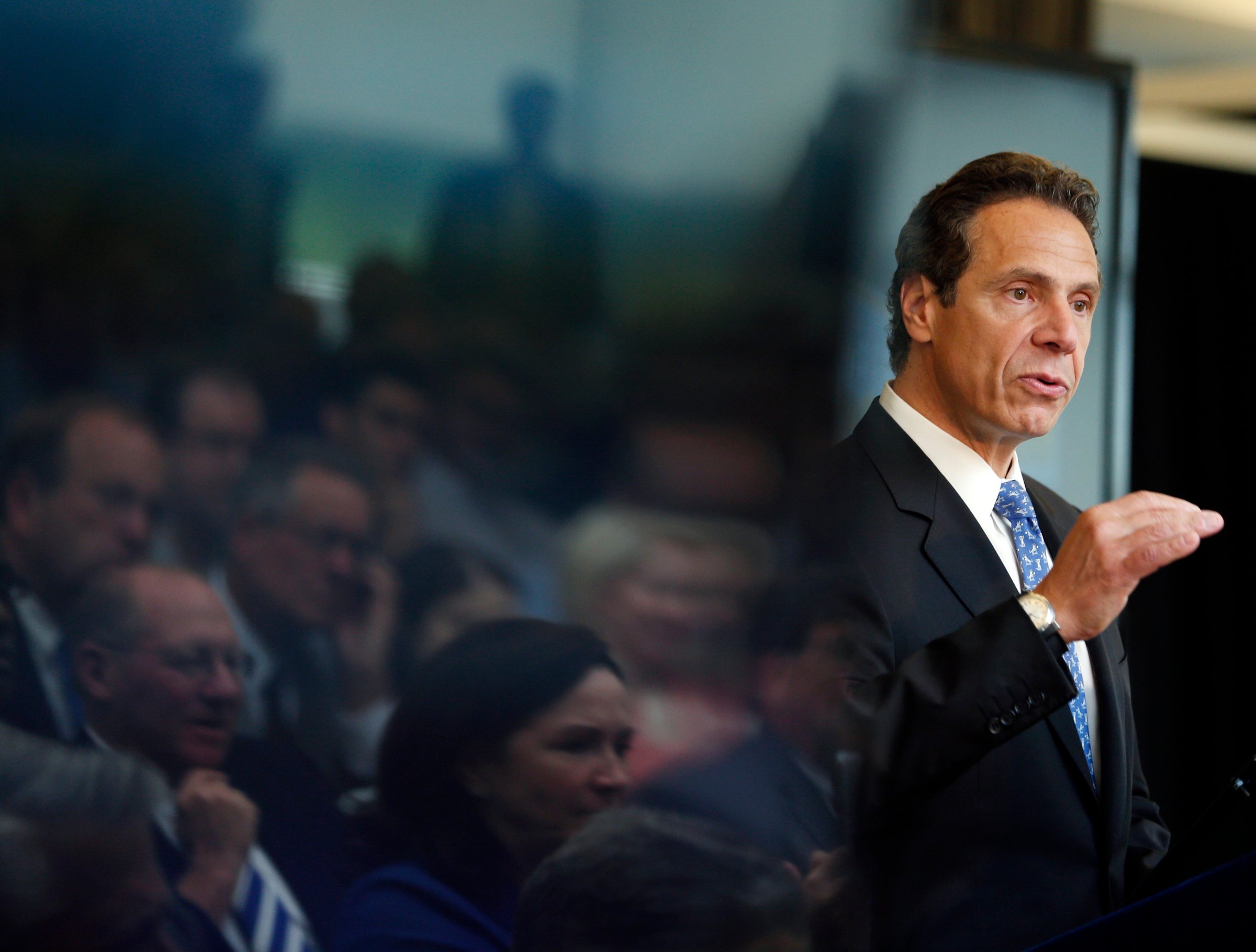
Before New York Governor Andrew Cuomo set up a supposedly independent commission to investigate political corruption in Albany—a commission he later shut down after it began poking around his own operations, a commission that is now causing him serious political headaches that could become legal headaches—he set up a supposedly independent commission to investigate the state’s electric utilities.
Mark Green, Cuomo’s fellow Democrat and onetime political opponent, says he was surprised when Cuomo tapped him to serve on the utility commission in November 2012. He says he was less surprised when Cuomo’s aides quickly began pushing the commission to propose privatizing the dysfunctional Long Island Power Authority, which was still struggling to get the lights back on after Superstorm Sandy. Several sources confirm the governor’s office pressured the commission to issue a report recommending privatization less than two months after its creation, and that Green threatened to resign when a Cuomo press release incorrectly suggested the recommendation had been unanimous.
“Independent?” Green said. “They tried to ram privatization down our throats. I told them I wasn’t going to be a fig leaf for Andrew.”
A spokesperson for Cuomo declined to comment.
Green, who lost to Cuomo in a Democratic primary for attorney general in 2006, was the commission’s most strident opponent of gubernatorial interference. But sources say members with no axe to grind—notably Peter Bradford, who had led the state Public Service Commission under Cuomo’s father Mario, and former attorney general Robert Abrams, a co-chair of the commission—objected as well.
“Several of us felt we needed to get further into our investigation before settling on one particular recommendation,” Bradford said. “There was definitely back-and-forth with the governor’s office about that. They had a viewpoint, and they wanted us to endorse it so quickly, we risked being perceived as a rubber stamp.”
Still, Bradford believes that Cuomo’s first Moreland Commission—the name comes from the state’s century-old Moreland Act—did good work without too much meddling. “It’s fair to say the governor didn’t have a truly independent process in mind,” Bradford said. “But nobody stopped us from issuing subpoenas. Nobody shut us down. The interference wasn’t as heavy-handed as it seems to have been later.”
Bradford was referring to Cuomo’s second Moreland Commission, the one that was supposed to root out corruption in state politics, the one that Cuomo disbanded in April. The New York Times reported this week that Cuomo’s aides forced it to withdraw a subpoena issued to the governor’s media-buying firm, and “objected whenever the commission focused on groups with ties to Mr. Cuomo.” Federal prosecutors are now investigating what happened with the commission.
The response from Cuomo’s office, laid out in this 13-page letter to the Times, has been rather novel: The commission was never intended to be truly independent, because it was a creature of the executive branch. “You know that’s f-cking ridiculous, right?” Jon Stewart asked on The Daily Show.
In fact, Cuomo, who’s running for reelection, aired a campaign ad bragging about the “Independent Commission” he established to fight corruption, but apparently, independence is a matter of degree. The letter to the Times argued that a commission created by the governor that reported to the governor and had the power to investigate the governor “would not pass the laugh test.” In fact, Cuomo said last August that the commission would investigate “anything they want to look at—me, the lieutenant governor, the attorney general,” and so on.
It’s an awkward position for Cuomo, but he’s still an overwhelming favorite to beat his Republican challenger, Rob Astorino, who recently lashed out at Republican Governors Association chairman Chris Christie for suggesting the race was a lost cause, as well as a liberal Democratic challenger, Zephyr Teachout. Cuomo has governed from the center on economic issues, working with Republicans to cut spending and cap property taxes, while tacking left on social issues, passing gay marriage and gun control laws. He lacks his father’s flair for rhetoric, but he’s seen as a more effective political operator, transactional rather than inspirational, pursuing the possible rather than the ideal. Albany has seemed a bit less dysfunctional during his tenure; politicians are still getting hauled off to jail but they’re at least finally passing budgets on time. Cuomo is often talked about as a potential presidential candidate—presumably not unless Hillary Clinton passes on the race in 2016, but quite possibly in 2020 or beyond.
The corruption commission could put a serious dent in that talk. It plays into the dark side of Cuomo’s reputation, persistent since he served as his father’s top aide, as a control freak and a bully. Several sources who declined to talk on the record cited fear of retribution. “I don’t want to poke that bear,” one official said.
On the other hand, Cuomo’s defenders say his aggressive approach has helped him break through the usual chaos of Albany to get things done—including, incidentally, the privatization of LIPA. Bradford said he was uncomfortable with the idea at first, and with Cuomo’s efforts to claim phantom unanimity. But by the time the commission finished its work, Bradford no longer felt uncomfortable.
“In the end, privatization seemed like the best way to shake things up,” he said. “Things worked out.”
More Must-Reads from TIME
- Where Trump 2.0 Will Differ From 1.0
- How Elon Musk Became a Kingmaker
- The Power—And Limits—of Peer Support
- The 100 Must-Read Books of 2024
- Column: If Optimism Feels Ridiculous Now, Try Hope
- The Future of Climate Action Is Trade Policy
- FX’s Say Nothing Is the Must-Watch Political Thriller of 2024
- Merle Bombardieri Is Helping People Make the Baby Decision
Contact us at letters@time.com